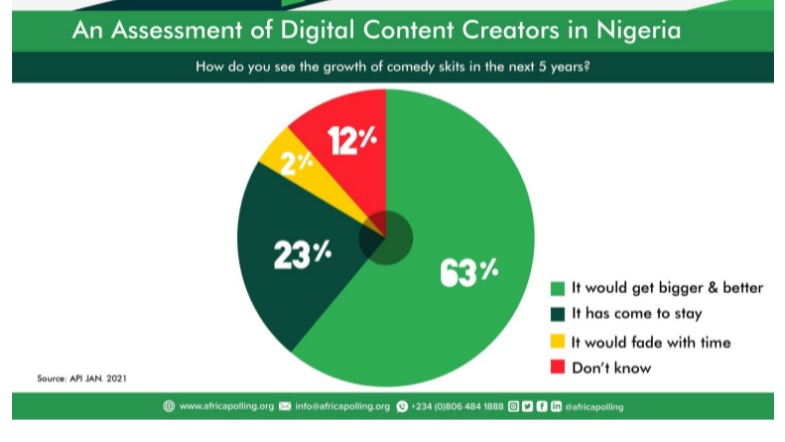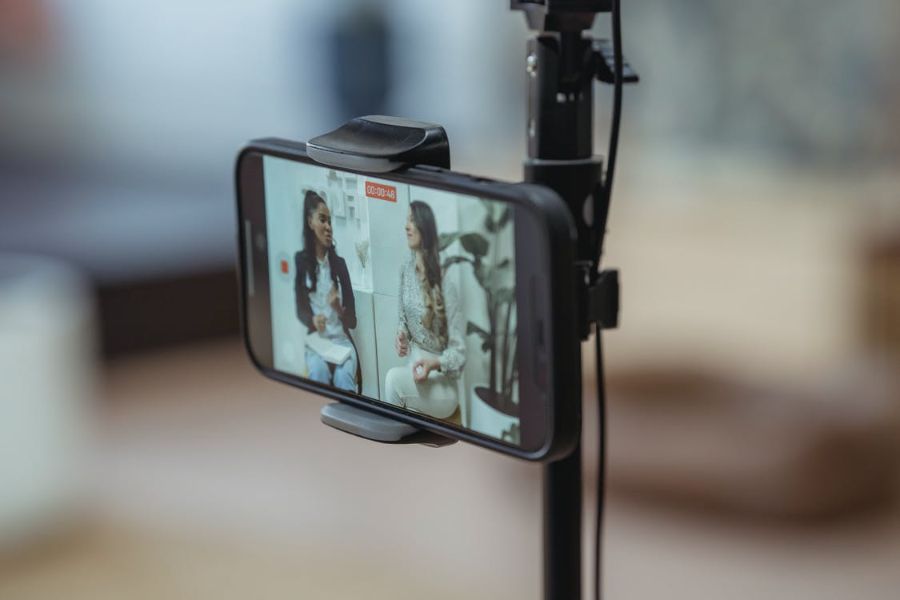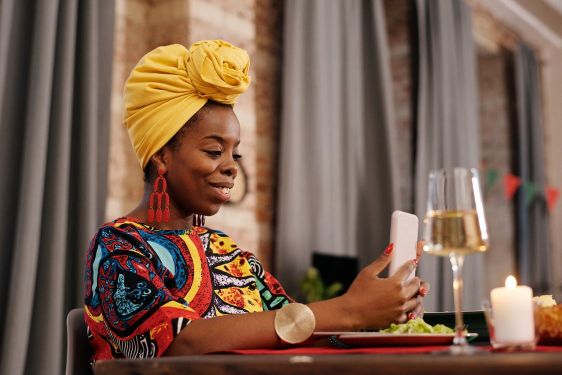Africa is catching up with innovations in digital technology despite its challenges and thousands of African brands are doing everything it takes to position for the future of digital marketing in Africa but, a large number of brands are still trying to figure out the latest trends in digital marketing.
As a brand that plans to stay ahead of competition in the Africa region; regardless of your size, it is crucial to identify the real time digital marketing trends in Africa so you can leverage these insights to create a realistic marketing strategy that delivers your ROIs.
In this guide, I’ll be sharing with you some of the data driven digital marketing trends in Africa, how these trends are shaping Africa’s digital innovation in this year and the ways you can key into these trends to position your business for a better visibility, sales and overall growth.
The Rise of Social Media
Table of Contents
Since the beginning of social media in the early 2000s, more and more Africans are getting on the different social media platforms, with a large number of African millennials and Gen Zs, being at the center of the social media revolution.
Although compared to other region, the sheer number of Africans using the social media may not seem very large, but when you consider that the vast majority of African social media users are not just young they are also educated, sophisticated and exposed, it becomes very clear that this population is highly targeted and cannot be missed by any serious brand, seeking a deeper penetration in the region.
In fact, according to a recent study by Visual Capitalist in 2024, three African countries, Nigeria, Kenya and South Africa made up the top five countries spending the most time on the social media. These countries spent at least 3hours 20 minutes on social media daily, compared to a global average of 2 hours.
Generally, while Northern and Southern African countries holds the majority of social media users in Africa, social media is very much emerging in almost every part of Africa.
Take for instance, between 2020 and 2021, Data Reportal confirms that six million Nigerians joined social media for the first time. This was one of the highest around the world. And the country has over 36 million social media users as at January, 2024.
And it doesn’t end there. The social media has become a powerful tool in shaping trends and conversations across Africa, leading to powerful revolutionary movement like the Arab Spring Protests in Northern Africa, #EndSARS in Nigeria, #REJECTFINANCEBILL2024 in Kenya and so many others.
With all of this, it is becoming increasingly clear that the social media is indeed at the center of the future of digital marketing in Africa, especially for brands wishing to gain widespread visibility among African Gen Zs and Millennials.
So as, a brand trying to penetrate the African market, you want to get your footing right on the social media and get your marketing strategy right, regardless of what you do on other platforms.
Short Video Content
In one of its 2019 articles, Techpoint had said that, online video content is not king in Nigeria, yet.
Taking a cursory look at the data shared in the post, I was taken aback And if you read that post, you’ll have no choice than to agree with the writer.
But coming back to the blog, post Covid-19 disruption, you get to realize that not only is that opinion unreliable, the indices have changed.
Before Covid 19, video content was still gaining a slow momentum in Africa but with the compulsory Covid-19 induced sit at home in 2020, just like it happened in most parts of the world, in Africa, short video content became a rescue from boredom, for most African millennials and Gen Zs.
Also, the rise in short video options for social media platforms like Instagram, Tiktok, Facebook, YouTube etc., increased Africa’s appetite for video content, leading to an increased in the number of self acclaimed skit makers, content creators and influencers.
From business perspective, this has also led to a rise in penetration and subscription for video streaming platforms like Netflix, Amazon Prime Videos, Showmax etc.
Take for example, Netflix after starting out with barely 300,000 subscribers in Africa in 2016, grew to over 2 million subscribers in 2021 and is still expected to more than double its subscriber base to 5.84 million in 2026.
Similar growth patterns was also projected for most other subscription based video streaming platforms operating in the continent, like Showmax, Amazon Prime etc.
Again, the rise and rise of comedy skit makers and short video creatives across the continent on platforms like Tiktok, Instagram, YouTube etc. are all patterns that demonstrates the continuous penetration of short video content in Africa.
Of course, one of the factors responsible for this development is the increasing affordability of smartphones and a more competitive data rates.
So, while the high cost of mobile internet data was a major concern for video concerns in times past, today, the slight reduction in cost of mobile data has made video content part of the future of digital marketing in Africa. Especially when it comes to telling deeper and more relatable stories.
And as a brand seeking to create and share content that resonates with Africans, you have to realize the place of not just video content but short video content as part of the key digital marketing trends in Africa, shaping the future.
Comedy Skits & Social Content
When it comes to digital marketing in Africa, the impact of comedy skits cannot be overemphasized. A recent poll by an Abuja based think tank shows that 67 percent of Nigerians say they watch comedy skits, with Facebook being the largest platforms where these skits are watched.
While you may argue the widespread identity of Nigerians polled the number of mainstream actors and brands that have partnered with these skit makers in creating content is a clear indication of where the industry is leading.

Unlike in times past, today the comedy industry has produced content creators who have gone from creating social media content in partnership with big media, to evolving widespread influence beyond the social media.
Talk about the Debo Adebayo, aka Mr. Macroni, John Perry, aka Broda Shaggy, Emmanuela of Mark Angel Comedy and so on. From social media skits, these content creators have moved onto create a widespread impact and influence both locally and internationally.
The growth pattern of these skit makers goes on to demonstrate the place of comedy skits as a highly valuable content for African audience audience.
And that being the case, this kind of content is not just at the center of digital marketing in Africa, its influence cannot be ignored both in terms of paid partnership, marketing and self-created content.
As part of a digital marketing strategy, some brands are directly partnering with these influencers to create and share branded content while some are using alternative options including brand mentions. Each of these partnership options do have their own cost. And you can always choose one based off your goals, resources or potential impact on your brand.
Influencer Marketing
While the role of influencers in brand marketing cannot truly be measured in most cases, surprisingly, influencers are becoming very visible in the Digital Marketing landscape in Africa.
Also, unlike in the past where brands were mostly focusing on artistes, Nollywood actors and other big names in traditional media, today the focus has extended to social media influencers including micro and nano influencers with smaller but highly engaged followers.
This can be very visible in places across key markets like South Africa, Nigeria, Kenya and Ghana. And in most cases, these influencers are leading the conversations in different niches across board.
What this changing trends indicates is that while you realistically may not be able to measure the impact of an influencer on your brand in terms of customer acquisition, influencer marketing is now a big part of digital marketing in Africa.
In specific niches like Politics, Brand visibility etc., these influencers are actually shaping conversations especially on platforms like Twitter, Instagram, Facebook, Tiktok and YouTube. And a lot of brands are patronizing them, regardless of the size of their audiences.
There are many ways to gauge the potential result you can generate from influencer marketing, including looking at the influencer’s audience, stats, engagement etc. These factors should give you an idea on the profit making prospects of any potential influencer partnerships.
Live Videos Can Create Live Impacts
You can say the Covid-19 pandemic was a major setback for businesses around the world, but we can also agree that for some brands in Africa, the Covid-19 pushback was a huge win for their expansionist moves and all round growth.

One of the leading case studies in this case are the 21st century Pentecostal churches across Africa.
I know. Like many other digital marketing experts, I have previously projected the possible role of social media in driving expansion for some churches, no one expected it’d come too suddenly or in such widespread moves.
But, no thanks to Covid-19 a lot has changed. And very rapidly too. Personally, I have watched 2 Nigerian churches 100x their impact and reach out to many other regions outside Africa by keying into the social media to hold online morning devotions and other services.
Most of these online morning devotions like the Next Level Prayers by Harvesters International Christian Centre, New Season Prophetic Prayers and Declarations NSSPD by Streams of Joy International held via live streaming has gone on to amass thousands of viewers and followers around the world.
This kind of reach could barely be possible without a seamless platform powered by digital innovation, leading to a reach beyond the organization’s original location.
Outside religious organizations, a large number of content creators in Africa have also leveraged the impact of live streaming to engage with their audience, grow their platforms and build a more connected fanbase.
As a brand in Africa, as far as digital marketing is concerned, you need to know that social media live content is also making waves as part of the future of marketing in Africa.
And you can key into live videos to promote your behind the scenes, create one on one interactions with your audience, paid partnerships on influencer platforms, among other ways.
Social PR is a Big Thing
If not for anything, using the social media for PR is also one of the key digital trends at the center of digital marketing in Africa. You’ll easily see this on leading social media platforms like Twitter, Facebook, Instagram.
One of the key areas this can be noticed is in the area of brand reputational management. Yes, you can think the cancel culture is just a thing in Europe and America, in Africa, it is also gaining grounds. And very fast too.
Popularly known as dragging, the cancel culture in Africa sees clients using the social media platforms to call out, exert pressure on or even bully brands.
This new development has brought some damage to certain brands, thus preempting brands to utilize the social media not just as an image laundering platform but also asserting itself and solving potential customer related issues even before it happens.
Situations like this have pushed forward the social media as a strong PR tool, thus putting it in the frontline as an integral part of the future of digital marketing in Africa. This is an area that brands can key in to position their visibility positively across audiences in Africa.
Artificial Intelligence
Like most other parts of the world, artificial intelligence is also taking deep roots in countries around Africa. Be it in creating more customized content, content ideas or general research.
The impact of Artificial Intelligence in Africa has led to the adoption of key Artificial Intelligence driven tools like ChatGPT, Gemini, Grok etc. And these tools are becoming a big part of the online marketing trends in Africa.
Although still at its infancy, ground breaking AI tools like ChatGPT are becoming firmly rooted in Africa’s digital landscape, creating an avenue for AI powered and automated businesses to take roots.
Recently, the increasing capacity of these tools to create and cite answers has created the need for African brands to position for a better visibility even within the AI tools database. And African brands can key into this to position and control their brand narratives.
Of course, the fact that the automation and artificial intelligence industry is still new in Africa also presents an opportunity and first mover advantage for businesses seeking to go into such ventures.
Final Words
Whether you agree with this or not, the data says it all; In a shocking reveal as way back as 2015, Sahara Reporter’s Nnenna Nwakanma quipped, “Whatever trends on Twitter trends on traditional media. And whatever trends on traditional media trends in the policy space. So we are looking at a shift in paradigm, in which social media becomes a definer of social discourse.”
As much as you may choose to argue or doubt this new reality, data says it all; digital marketing in Africa has come to stay and by no means can it be ignored if you really want to make a real push into major African markets.
At this point, I am hoping that after reading through this and getting to understand the digital marketing trends in Africa, you’re already coming up with ideas to push forward a realistic digital marketing strategy that will deliver results for your business.
At victorwinners.com, we’re committed about using trends, analytics and big data to help businesses navigate their brands in Africa. And you can reach out to us when you click here.
So, it’s over to you now! What’s your biggest challenge when it comes to digital marketing as an African brand?
Let’s continue the conversation in the comments sections.

One response
[…] what makes digital strategy peculiar in Africa is that unlike other regions, in Africa, the target audience, demographics and […]